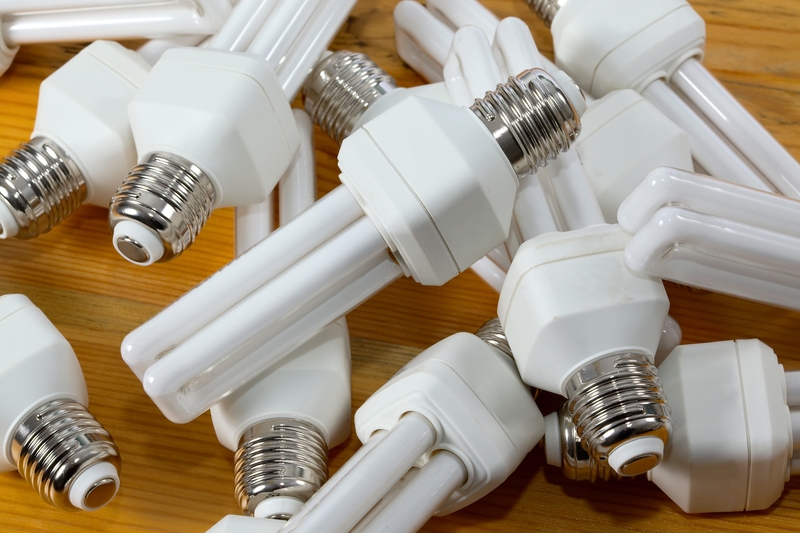Smart Planning for Waste Reduction in Your Home
Introduction: Embracing a Waste-Free Lifestyle
Smart planning for waste reduction in your home is not just a passing trend--it's an essential step toward environmental sustainability and cost savings. As more households become mindful of their environmental impact, creating a low-waste home is both rewarding and achievable. In this article, we'll guide you through comprehensive strategies, practical tips, and sustainable habits to help minimize waste effectively, ensuring your journey towards a greener home is both easy and enjoyable.

Understanding the Importance of Home Waste Reduction
Every year, millions of tons of household waste end up in landfills, contributing to pollution and depleting valuable resources. Smart waste management at home is crucial for conserving resources, reducing greenhouse gas emissions, and saving money. By adopting mindful consumption and disposal habits, you can make a significant difference in the environment while improving your quality of life.
Environmental Benefits
- Reduced Landfill Use: Less waste produced means less waste sent to landfill, which helps cut down on harmful methane emissions.
- Resource Conservation: Smart waste reduction helps preserve raw materials and reduces the demand for resource-intensive manufacturing processes.
- Lower Carbon Footprint: By minimizing waste, you lower the energy consumed during production, transportation, and waste management.
Personal and Community Advantages
- Cost Savings: Spending smarter and wasting less decreases household expenses.
- Healthier Home: Reducing waste often means fewer single-use plastics and hazardous chemicals in your living space.
- Community Engagement: Waste reduction at the household level encourages community-wide sustainability initiatives.
Assessing Your Household Waste
Before you begin your journey towards effective waste reduction in your home, it's essential to assess your current waste habits. Conducting a simple waste audit helps identify the biggest sources of waste and sets the foundation for improvement.
How to Perform a Home Waste Audit
- Collect your household garbage for a week, keeping recyclables and compostables separate.
- Sort through the waste and categorize items (e.g., food scraps, plastics, paper, glass, textiles).
- Identify frequently discarded items and areas with the most potential for reduction.
- Set specific reduction goals based on your findings.
Smart Planning Strategies for Reducing Home Waste
With a clear understanding of your household's waste patterns, it's time to embrace smart planning for waste reduction at home. The following methods are both practical and effective.
1. Mindful Purchasing Habits
- Plan your shopping in advance to avoid impulse purchases and redundant items. Make a detailed list and stick to it.
- Opt for bulk buys for frequently used items, minimizing packaging and frequently replenishing essentials.
- Choose quality over quantity. Invest in durable goods that last longer and reduce the need for frequent replacements.
- Select recyclable or compostable packaging whenever possible.
2. Food Waste Reduction Techniques
- Meal planning: Before shopping, plan your weekly meals to use up perishable ingredients efficiently.
- Proper storage: Use airtight containers and smart fridge organization to extend the shelf life of food.
- Creative leftovers: Repurpose leftovers into new meals, minimizing food discard.
- Compost food scraps: Convert fruit and vegetable peels, coffee grounds, and eggshells into garden gold with home composting.
Did you know? According to the EPA, food loss and waste accounts for about 24% of landfill input. By incorporating meal planning and composting, households can significantly reduce this portion.
3. Embrace Reusable Alternatives
- Replace single-use plastics with reusable items--cloth shopping bags, stainless steel bottles, beeswax wraps, and glass containers.
- Switch to washable textiles instead of paper towels and napkins.
- Use refillable products for cleaning supplies, toiletries, and even groceries where possible.
4. Efficient Home Recycling Systems
Designate recycling zones in your home and educate everyone on separating recyclable materials correctly. Each municipality may differ in accepted materials, so always check your local guidelines.
- Label recycling bins: Clear labels ensure everyone in the household sorts materials properly.
- Rinse recyclables: Clean materials are more likely to be accepted for recycling.
- Avoid contamination: Wipe out food residue and keep greasy or soiled items out of the recycling stream.
5. Composting for Organic Waste Management
- Start a backyard compost bin or participate in a community composting program.
-
Compostable Items:
- Fruit and vegetable scraps
- Coffee grounds and filters
- Eggshells
- Yard waste like leaves and grass clippings
- Avoid composting: Meat, dairy, and oily foods (unless using specialized composting systems).
Composting dramatically reduces the volume of household trash and produces rich soil for gardens, closing the loop on waste.
6. Repurposing, Repairing, and Upcycling Household Items
- Repurpose containers, jars, and boxes for organization or crafts.
- Repair clothes, electronics, and furniture rather than replacing them.
- Upcycle old materials into new, functional products--such as turning old t-shirts into cleaning rags or DIY decor.
Creating a Waste Reduction Action Plan for Your Home
A successful household waste reduction plan combines clear goals, consistent practice, and involvement from all family members. Here's how to build a tailored, actionable plan:
1. Set Clear, Achievable Goals
- Aim to reduce specific waste streams (e.g., cut landfill trash by 30% in 3 months).
- Track progress monthly and adjust your strategies as needed.
2. Assign Roles and Responsibilities
- Involve children in sorting recyclables and washing containers.
- Designate family members for composting tasks, shopping, and meal prep.
3. Educate and Motivate
- Hold regular family meetings to review progress and share new ideas.
- Celebrate achievements to keep motivation high.
4. Monitor and Adjust Over Time
- Reassess your household waste audit every few months.
- Stay informed about local recycling changes or new programs.
Tips for Tackling Common Waste Challenges in the Home
Some waste categories are more challenging than others. Here are smart solutions for specific issues:
Minimizing Plastic Waste
- Bulk shopping: Use reusable produce and bulk bins bags.
- Support plastic-free brands: Shop from businesses that prioritize minimal and sustainable packaging.
- DIY cleaning and beauty products: Make your own products to avoid excess packaging.
Reducing Electronic Waste
- Donate or sell functional devices: Give a second life to old gadgets.
- Responsible recycling: Take broken electronics to certified e-waste recyclers.
- Choose quality electronics: Invest in durable products from brands offering repair services and parts.
Effective Hazardous Waste Management
- Safe disposal: Follow local guidelines for household chemicals, batteries, and paints.
- Purchase in small quantities: Only buy what you can safely use up.
- Use environmentally friendly alternatives: Opt for green cleaning supplies and rechargeable batteries.
How Technology Supports Smarter Waste Reduction
Modern technology can be a powerful ally in your home waste reduction strategy. Here's how digital tools can make waste management easier and more effective:
- Automated shopping lists: Apps help track pantry items and avoid overbuying.
- Meal planning software: Reduces food waste by organizing meals based on what's already in your fridge.
- Recycling guides: Local municipality apps outline correct sorting practices and compostable items.
- Reminders for waste days: Set up alerts for recycling and compost collection to ensure you never miss pick-up days.
Smart Waste Reduction for Apartments and Small Spaces
You don't need a big backyard or extra storage to implement smart waste reduction at home. Urban renters and small households can utilize these techniques:
- Compact compost bins: Try in-kitchen countertop composters or join local community compost drop-offs.
- Community recycling and swap initiatives: Participate in local clothing swaps or freecycling events.
- Minimalist living: Focus on multi-purpose items and declutter regularly to prevent unnecessary waste generation.
Resources and Tools for Waste Reduction Success
There are many resources to help you on your waste reduction journey:
- Online communities: Join zero waste, minimalist, and eco-friendly Facebook groups and forums.
- Local workshops: Attend classes on composting, upcycling, and sustainable living.
- Guides and checklists: Download printable waste reduction checklists to track your progress and stay organized.
Conclusion: Start Your Smart Waste Reduction Plan Today
With smart planning and practical strategies, reducing waste in your home is not only attainable but highly rewarding. Every small change contributes to a healthier planet and a more efficient household. Whether you are starting small or aiming for a full zero-waste lifestyle, the key is to be intentional, involve your family, and stay informed about new solutions.
Take the first step today: Assess your home's waste, set realistic goals, and implement at least one new waste reduction habit. Together, we can build a cleaner future, beginning with our own homes.

Frequently Asked Questions About Home Waste Reduction
What is the first step to reducing waste in my home?
Start with a waste audit: Analyze what you throw out in a typical week to find your biggest opportunity areas.
Can small changes really make a difference?
Absolutely! Every small action adds up. Simple steps like meal planning, recycling properly, and using reusables will decrease your waste footprint.
Is composting worth the effort?
Yes! Composting keeps organics out of landfill, reduces methane, and provides free, natural fertilizer for gardens or community green spaces.
Do I need expensive products to reduce waste at home?
No. Many waste reduction strategies simply rely on using less, reusing what you have, and repairing instead of replacing items. Start with what's accessible.
Start your journey to a smarter, low-waste home today!
Remember, the path to effective home waste reduction is about making conscious choices, planning ahead, and inspiring those around you. Every mindful decision moves us closer to a cleaner, healthier, and more sustainable world.